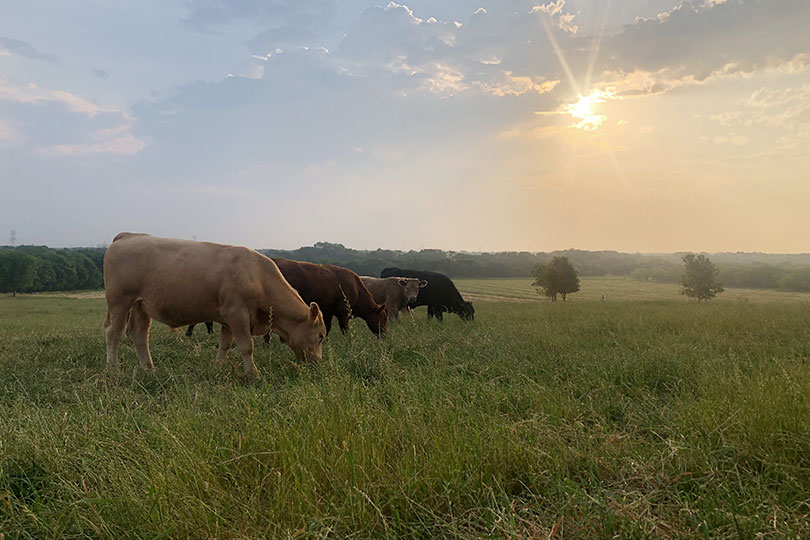The U.S. Department of Agriculture (USDA) Agricultural Marketing Service (AMS) yesterday released an investigative report on the impact of the 2019 fire at a Kansas meatpacking plant and the COVID-19 pandemic on beef price margins.
The report, which summarizes market conditions, fed cattle prices, boxed beef values and the price spread over the course of the two events, identifies no wrongdoing on the part of meatpackers.
“We’re happy to finally see results because our farmers and ranchers have been feeling the effects of low prices while watching the price of beef hit record levels,” Texas Farm Bureau Associate Director of Commodity and Regulatory Activities Tracy Tomascik said. “At the end of the day, our members need a stable market for their cattle.”
Improved price discovery, increased competition and a more transparent relationship between the prices for live cattle and resulting products is needed, USDA noted.
“The closure of the Tyson beef packing plant in Holcomb, Kansas, after a fire at the facility and the COVID-19 pandemic clearly disrupted the markets and processing systems responsible for the production and sale of U.S. beef,” U.S. Secretary of Agriculture Sonny Perdue said in a press release. “The report examines these economic disruptions and the significant increase in the spread between boxed beef and fed cattle prices that resulted from them. While we’re pleased to provide this update, we assure producers that our work continues in order to determine if there are any violations of the Packers and Stockyards Act. If any unfair practices are detected, we will take quick enforcement action.”
According to the report, market conditions over the past two years are only one part of a larger discussion within the cattle, beef and other related industries, which share a “common narrative about a highly-concentrated meatpacking sector.”
The agency offered suggestions for improving the market, including adding capacity at smaller processors and allowing these smaller processors to sell across state lines. USDA also suggested finding ways to add more capacity for smaller processors as an option to help improve the market.
There are several policy considerations which may result from the report, including possible updates to Livestock Mandatory Reporting and enhancements to the Packers and Stockyards Act investigative and enforcement tools.
“We are pleased the USDA responded to our call for an investigation, but it’s important to note the scrutiny of the markets is not concluded,” American Farm Bureau Federation (AFBF) President Zippy Duvall said. “USDA indicates their examination continues and investigations by the Commodity Futures Trading Commission, as well as the Department of Justice, are ongoing.”
Since the investigation into potential violations continues, AMS has limited ability to publicly report the full scope and status of the investigation.
“We appreciate the USDA’s thorough examination of the beef markets. There’s little doubt that something is wrong when consumers are paying higher prices for meat and at the same time America’s farmers and ranchers are being paid less,” Duvall said. “We are reviewing the policy recommendations the USDA put forth in the report and look forward to working with them and Congress to ensure markets remain fair for everyone involved.”
USDA continues to be engaged with the U.S. Department of Justice (DOJ) regarding allegations of anticompetitive practices in the meat packing industry, according to the report. If USDA finds a violation of the Packers and Stockyards Act, the agency is authorized to report the violation to DOJ for prosecution.
Click here to read the full report.
Click here to read AFBF’s Market Intel analysis of the report.

